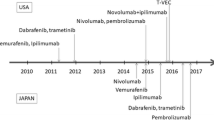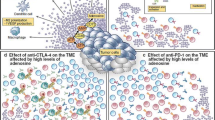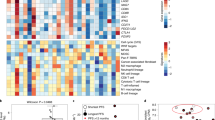Abstract
Purpose
In the management of melanoma, BRAF inhibitors yield fast disease control; however, the duration of response does not last very long. Ipilimumab—an anti-CTLA4 antibody on the other hand—provides longer-lasting results of treatment but achieves less favorable responses. The aim of this study was to assess the efficacy and safety of novel drugs for advanced melanoma in daily routine practice.
Methods
A retrospective observational study was conducted on all Polish patients (1170 patients), diagnosed with advanced metastatic melanoma, treated with the following drugs: vemurafenib, dabrafenib, and ipilimumab. The antitumor efficacy of these agents was retrospectively assessed by Response Evaluation Criteria in Solid Tumors in the case of BRAF inhibitors and by Immune-Related Response Criteria in the case of ipilimumab therapy. Adverse events were assessed in relation to the morphologic parameters of blood, nephrotoxicity, and hepatotoxicity.
Results
The overall response to treatment with BRAF inhibitors (vemurafenib and dabrafenib) was similar with a slightly better outcome in the group treated with vemurafenib. Compared to clinical trials, the objective response rate was slightly worse for both BRAF inhibitors (30% and 42% for dabrafenib and vemurafenib, respectively), as well as the immune-related response for ipilimumab (1%). There was no significant difference in patient’s response rates regardless of what lines of treatment (first, second, or next) vemurafenib was applied in. A few severe adverse events (mostly anemia and hyperbilirubinemia) were observed during treatment.
Conclusions
The lack of evidence in responses observed regardless of what line of treatment vemurafenib was applied in suggests there is no clinical reason for restricting BRAF inhibitors to only the first line of therapy. Our study confirms that novel agents brought about a major advancement in the management of melanoma. In line with literature, BRAF inhibitors and ipilimumab significantly improved the antitumor response rate with manageable adverse events.
Similar content being viewed by others
References
Chapman PB, Hauschild A, Robert C, Haanen JB, Ascierto P, Larkin J, Dummer R, Garbe C, Testori A, Maio M, Hogg D, Lorigan P, Lebbe C, Jouary T, Schadendorf D, Ribas A, O’Day SJ, Sosman JA, Kirkwood JM, Eggermont AM, Dreno B, Nolop K, Li J, Nelson B, Hou J, Lee RJ, Flaherty KT, McArthur G, BRIM-3 Study Group (2011) Improved survival with vemurafenib in melanoma with BRAF V600E mutation. N Engl J Med 364:2507–2516
Hauschild A, Grob JJ, Demidov LV, Jouary T, Gutzmer R, Millward M, Rutkowski P, Blank CU, Miller WH Jr, Kaempgen E, Martín-Algarra S, Karaszewska B, Mauch C, Chiarion-Sileni V, Martin AM, Swann S, Haney P, Mirakhur B, Guckert ME, Goodman V, Chapman PB (2012) Dabrafenib in BRAF-mutated metastatic melanoma: a multicentre, open-label, phase 3 randomised controlled trial. Lancet 380:358–365
Sosman JA, Kim KB, Schuchter L, Gonzalez R, Pavlick AC, Weber JS, McArthur GA, Hutson TE, Moschos SJ, Flaherty KT, Hersey P, Kefford R, Lawrence D, Puzanov I, Lewis KD, Amaravadi RK, Chmielowski B, Lawrence HJ, Shyr Y, Ye F, Li J, Nolop KB, Lee RJ, Joe AK, Ribas A (2012) Survival in BRAF V600-mutant advanced melanoma treated with vemurafenib. N Engl J Med 366(8):707–714
Hersh EM, O’Day SJ, Powderly J, Khan KD, Pavlick AC, Cranmer LD, Samlowski WE, Nichol GM, Yellin MJ, Weber JS (2011) A phase II multicenter study of ipilimumab with or without dacarbazine in chemotherapy-naïve patients with advanced melanoma. Investig New Drugs 29(3):489–498
Hodi FS, O’Day SJ, McDermott DF, Weber RW, Sosman JA, Haanen JB, Gonzalez R, Robert C, Schadendorf D, Hassel JC, Akerley W, van den Eertwegh AJ, Lutzky J, Lorigan P, Vaubel JM, Linette GP, Hogg D, Ottensmeier CH, Lebbé C, Peschel C, Quirt I, Clark JI, Wolchok JD, Weber JS, Tian J, Yellin MJ, Nichol GM, Hoos A, Urba WJ (2010) Improved survival with ipilimumab in patients with metastatic melanoma. N Engl J Med 363(8):711–723
McDermott D, Haanen J, Chen TT, Lorigan P, O’Day S, MDX010-20 Investigators (2013) Efficacy and safety of ipilimumab in metastatic melanoma patients surviving more than 2 years following treatment in a phase III trial (MDX010-20). Ann Oncol 24(10):2694–2698
Zimmer L, Eigentler TK, Kiecker F, Simon J, Utikal J, Mohr P, Berking C, Kämpgen E, Dippel E, Stadler R, Hauschild A, Fluck M, Terheyden P, Rompel R, Loquai C, Assi Z, Garbe C, Schadendorf D (2015) Open-label, multicenter, single-arm phase II DeCOG-study of ipilimumab in pretreated patients with different subtypes of metastatic melanoma. J Transl Med 13:351
Jarkowski A 3rd, Norris L, Trinh VA (2014) Controversies in the management of advanced melanoma: “gray” areas amid the “black and blue”. Ann Pharmacother 48(11):1456–1468
Aya F, Fernandez-Martinez A, Gaba L, Victoria I, Tosca M, Pineda E, Gascon P, Prat A, Arance A (2017) Sequential treatment with immunotherapy and BRAF inhibitors in BRAF-mutant advanced melanoma. Clin Transl Oncol 19(1):119–124
McArthur GA, Chapman PB, Robert C et al (2014) Safety and efficacy of vemurafenib in BRAF(V600E) and BRAF(V600K) mutation-positive melanoma (BRIM-3): extended follow-up of a phase 3, randomised, open-label study. Lancet Oncol 15:323–332
Weber JS, Kähler KC, Hauschild A (2012) Management of immune-related adverse events and kinetics of response with ipilimumab. J Clin Oncol 30(21):2691–2697
EMA/CHMP/557664/2011 Procedure No.: EMEA/H/C/002213 Assessment Report for Yervoy (ipilimumab). Committee for Medicinal Products for Human Use (CHMP). 19 May 2011
Polkowska M, Ekk-Cierniakowski P, Czepielewska E, Wysoczański W, Matusewicz W, Kozłowska-Wojciechowska M (2017) Survival of melanoma patients treated with novel drugs: retrospective analysis of real-world data. J Cancer Res Clin Oncol 143(10):2087–2094
Therneau T (2015) A package for survival analysis in S. Version 2.38. https://CRAN.R-project.org/package=survival
Venables WN, Ripley BD (2002) Modern applied statistics with S. Fourth Edition. Springer, New York ISBN 0-387-95457-0
EMA website (access on September 24th 2018) http://www.ema.europa.eu/ema/index.jsp?curl=pages/special_topics/document_listing/document_listing_000365.jsp&mid=WC0b01ac058067bfff
Ackerman A, Klein O, McDermott DF, Wang W, Ibrahim N, Lawrence DP, Gunturi A, Flaherty KT, Hodi FS, Kefford R, Menzies AM, Atkins MB, Long GV, Sullivan RJ (2014) Outcomes of patients with metastatic melanoma treated with immunotherapy prior to or after BRAF inhibitors. Cancer 120(11):1695–1701
Queirolo P, Spagnolo F, Ascierto PA, Simeone E, Marchetti P, Scoppola A, Del Vecchio M, Di Guardo L, Maio M, Di Giacomo AM, Antonuzzo A, Cognetti F, Ferraresi V, Ridolfi L, Guidoboni M, Guida M, Pigozzo J, Chiarion SV (2014) Efficacy and safety of ipilimumab in patients with advanced melanoma and brain metastases. J Neuro-Oncol 118(1):109–116
Brzozowska M, Wierzba W, Śliwczyński A, Świerkowski M, Potemski P, Marczak M (2018) Analysis of survival of patients treated with vemurafenib, ipilimumab and dabrafenib for advanced skin melanoma in daily clinical practice (real-world data): retrospective analysis of patients treated under drug/reimbursement programmes in Poland in 2013-2016. Melanoma Res 28(1):52–55
Author information
Authors and Affiliations
Contributions
Conception and design: Marta Polkowska, Małgorzata Kozłowska-Wojciechowska
Provision of study materials or patients: Marta Polkowska
Collection and assembly of data: Marta Polkowska, Paweł Ekk-Cierniakowski
Data analysis and interpretation: Marta Polkowska, Edyta Czepielewska
Manuscript writing: Marta Polkowska
Final approval of manuscript: All authors
Corresponding author
Ethics declarations
Conflict of interest
The authors declare that they have no conflict of interest.
Electronic supplementary material
ESM 1
(DOCX 46 kb)
Rights and permissions
About this article
Cite this article
Polkowska, M., Ekk-Cierniakowski, P., Czepielewska, E. et al. Efficacy and safety of BRAF inhibitors and anti-CTLA4 antibody in melanoma patients—real-world data. Eur J Clin Pharmacol 75, 329–334 (2019). https://doi.org/10.1007/s00228-018-2590-6
Received:
Accepted:
Published:
Issue Date:
DOI: https://doi.org/10.1007/s00228-018-2590-6




